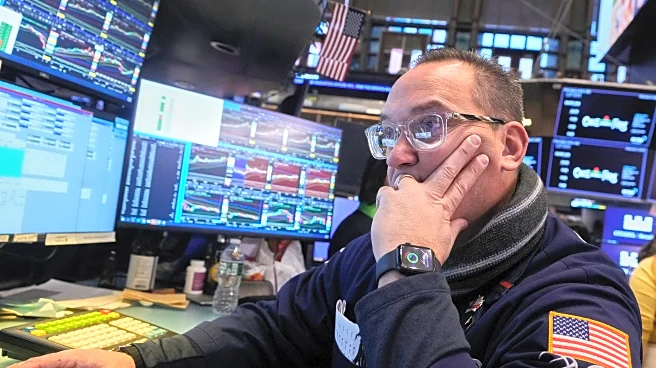Rapid Read • 8 min read
The European Union is ramping up efforts to secure a trade deal with the United States, led by President Trump, as the deadline approaches. The EU is negotiating to avoid significant US tariffs, with a proposed baseline of 15-percent levies on EU goods. President Trump has threatened to increase tariffs to 30 percent if an agreement is not reached by August 1. In response, the EU has prepared a package of counter-tariffs on $109 billion worth of US goods, set to be implemented from August 7 if negotiations fail. The EU's strategy involves both negotiation and preparation for potential retaliation, emphasizing the importance of exemptions for critical sectors such as aircraft, steel, and pharmaceuticals.
AD
The outcome of these negotiations holds significant implications for international trade relations and economic stability. A successful deal could prevent the escalation of tariffs, benefiting industries on both sides of the Atlantic. However, failure to reach an agreement could lead to increased costs for businesses and consumers, potentially driving relocations and affecting profit margins. The EU's readiness to retaliate underscores the high stakes involved, as both parties seek to protect their economic interests. The negotiations also reflect broader geopolitical dynamics, with the EU balancing its trade objectives against maintaining US support for security and foreign policy initiatives.
If the EU and the US fail to reach a deal, the EU's counter-tariffs will take effect, potentially escalating trade tensions. The EU may also consider deploying its anti-coercion instrument, which could impose further restrictions on US goods and services. However, this option is seen as a last resort, given the potential impact on EU-US relations. The final decision rests with President Trump, whose actions will determine the direction of future trade policies. The EU remains committed to negotiations but is prepared to respond forcefully if necessary.
The trade negotiations highlight the complex interplay between economic and political considerations. The EU's approach reflects a strategic balance between securing favorable trade terms and maintaining diplomatic relations with the US. The potential use of the anti-coercion instrument raises ethical questions about the extent to which economic leverage should be used in international diplomacy. Additionally, the negotiations may influence future trade policies and alliances, as both parties navigate the challenges of globalization and shifting geopolitical landscapes.
AD
More Stories You Might Enjoy












